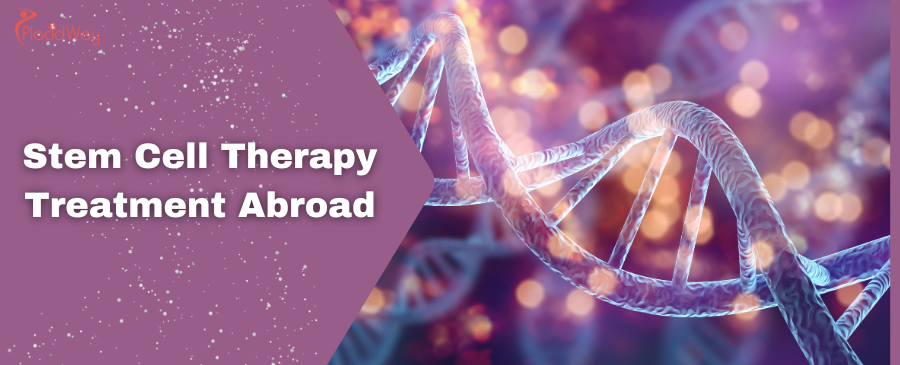
Table of Content
Key Insights at a Glance
- Stem cell therapy offers regenerative solutions for chronic conditions.
- Traveling abroad for stem cell therapy can save up to 70% on costs.
- Advanced treatments for conditions like Autism, MS, and diabetes are now available internationally.
- Countries like Mexico, Turkey, and Thailand are leaders in safe, accredited stem cell treatments.
What is Stem Cell Therapy?
Stem cell therapy is a regenerative treatment that uses the body’s own stem cells to repair damaged tissues and treat diseases. Stem cells are unique in their ability to transform into specialized cell types, making them valuable for targeting a wide range of conditions, including neurological disorders, immune diseases, joint injuries, and chronic illnesses. By encouraging tissue repair and reducing inflammation, stem cell therapy offers a promising, minimally invasive alternative for healing and recovery.
Symptoms Treated by Stem Cell Therapy
- Chronic pain and inflammation in joints or organs
- Neurological symptoms like tremors and muscle weakness
- Difficulty breathing, often associated with COPD
- Loss of motor skills or cognitive function
- Uncontrolled blood sugar levels in diabetes
Latest Types of Stem Cell Therapy Available Worldwide
Here are the types of Regenerative Stem Cell Therapy Research:
1. Embryonic stem cell therapy
- Source: Derived from early-stage embryos.
- Potential: Can develop into any cell type in the body.
- Controversy: Ethical concerns due to the source, prompting research into alternative stem cell sources.
- Source: Typically extracted from bone marrow, skin, or blood.
- Applications: Used to repair or replace specific cell types, like nerve, cardiac, and muscle cells.
- Popularity: Commonly used in therapies today due to lower ethical concerns and diverse applications, including in treating diabetes and Parkinson’s disease.
3. Umbilical cord stem cell therapy
- Source: Collected from the blood in the umbilical cord after birth.
- Benefits: Rich in stem cells that reduce rejection risks, making it valuable for transplants and cell regeneration.
- Usage: Many parents bank their children’s umbilical cord cells for potential future treatment needs.
- Source: Stem cells are extracted from the placenta afterbirth.
- Ethical Consideration: Considered non-controversial, as it involves no interaction with the fetus.
- Potential: Contains multipotent cells useful for treating various illnesses, with growing research interest.
| Treatment Type | Description |
|---|---|
| Stem Cell Therapy for Autism | Focuses on reducing behavioral symptoms, improving social interactions, and enhancing cognitive functions. |
| Stem Cell Therapy for Multiple Sclerosis (MS) | Aims to regenerate damaged nerve tissues and alleviate symptoms like fatigue, mobility issues, and pain. |
| Stem Cell Therapy for Cancer | Supports recovery from treatments like chemotherapy and promotes healthy cell growth, focusing on cancers like leukemia. |
| Stem Cell Therapy for COPD | Regenerates lung tissue, aiming to improve breathing, reduce inflammation, and enhance overall lung function. |
| Stem Cell Therapy for Diabetes | Targets pancreatic cells to help regulate insulin production and blood sugar levels more effectively. |
| Other Conditions | Stem cell therapy is also used for heart disease, liver disease, arthritis, and injury recovery. |
Find out different packages for Stem Cell Therapy by clicking here.
Trending Cell Therapies Abroad for Complex Diseases:
1. CAR T-Cell Therapy
CAR T-cell therapy is a personalized immunotherapy where a patient’s T-cells are modified to target specific cancer cells. Primarily used for blood cancers like leukemia and lymphoma, this therapy can lead to long-term remission but may involve intense side effects and is high-cost.
2. NK Cell Therapy
NK (Natural Killer) cell therapy harnesses the body’s innate immune cells to target and destroy cancer cells. These cells do not require modification, making NK therapy a simpler, potentially less toxic treatment option, though it may need multiple doses for sustained effects.
CAR T-Cell Therapy vs. NK Cell Therapy
| Therapy | CAR T-Cell Therapy | NK Cell Therapy |
|---|---|---|
| Overview | Engineered T-cells to target specific cancer antigens | Natural immune cells that target abnormal cells |
| Process | T-cells are extracted, modified, expanded, and reinfused | NK cells sourced, expanded, and reinfused |
| Applications | Primarily blood cancers; ongoing research for solid tumors | Blood cancers and some solid tumors |
| Benefits | Long-term remission potential; targeted immune response | Fewer severe side effects; broader patient suitability |
| Limitations | High cost, severe side effects (e.g., cytokine release) | Limited persistence; may require repeat doses |
Safety Concerns Related to Stem Cell Therapy Abroad
- Ensure clinics are accredited and have well-documented procedures.
- Check that therapies follow international standards to minimize risks.
- Opt for clinics with highly trained specialists in regenerative medicine.
- Verify if cell sources meet ethical and safety guidelines.
Key Benefits of Stem Cell Therapy
-
Tissue Regeneration: Stem cells promote natural healing by regenerating damaged tissues, making them effective for injuries, degenerative diseases, and organ repair.
-
Reduced Inflammation: Stem cells can help lower inflammation levels, aiding in conditions like arthritis and autoimmune diseases for long-term symptom relief.
-
Minimally Invasive: Many stem cell procedures are non-surgical and minimally invasive, leading to shorter recovery times and reduced risks compared to traditional surgeries.
-
Reduced Risk of Rejection: Using a patient’s own stem cells (autologous therapy) reduces the likelihood of immune rejection and complications.
-
Chronic Condition Management: Stem cell therapy offers potential benefits for chronic conditions like heart disease, diabetes, and neurological disorders, targeting underlying issues rather than just symptoms.
-
Potential for Wide Application: With ongoing research, stem cell therapy is expanding to treat an array of conditions, offering a regenerative approach in medicine that may address complex health needs.
Risks Associated with Stem Cell Therapy Globally
- Risk of infection or inflammation at the injection site
- Possibility of immune rejection or adverse reactions
- Unregulated clinics may offer unproven treatments
- Potential for unexpected side effects depending on condition
Procedure Details for Stem Cell Therapy
Stem cell therapy varies depending on the condition treated. Common steps include:
- Harvesting stem cells from the patient or a compatible donor
- Processing and preparing the cells for reinjection
- Administering cells through targeted injections or IV therapy
- Monitoring the patient for immediate response and recovery progress
Cost of Stem Cell Therapy in the World | Compare Prices
| Country | Approximate Cost (USD) |
|---|---|
| Mexico | $5,000 - $12,000 |
| Turkey | $6,000 - $15,000 |
| Thailand | $8,000 - $18,000 |
| Colombia | $4,500 - $10,000 |
| India | $3,500 - $9,000 |
| USA | $30,000 - $50,000 |
Find prices for Stem Cell Therapy near you here.
FAQs Related to Stem Cell Therapy Internationally
What does Stem Cell Therapy Cost without Insurance Abroad?
Without insurance, stem cell therapy costs vary depending on location and treatment type. In countries like Mexico and India, prices are more affordable, typically ranging from $3,500 to $12,000, whereas treatments in the U.S. can cost significantly more.
How effective is stem cell therapy for chronic conditions?
Studies show that stem cell therapy can be effective in treating certain chronic conditions, especially in cases like arthritis, COPD, and autoimmune disorders. However, effectiveness varies, and it's crucial to consult with specialized professionals.
Is stem cell therapy a cure for diseases like MS and autism?
While stem cell therapy shows promising results in alleviating symptoms of MS and autism, it is not considered a cure. Patients often report improved quality of life, but results may vary based on individual cases.
Are there age restrictions for stem cell therapy abroad?
Generally, there are no strict age limits, although suitability depends on the patient’s condition and overall health. Clinics typically evaluate candidates to ensure they meet safety standards for the procedure.
What types of stem cells are used in these therapies?
Most therapies use either autologous (from the patient) or allogeneic (donor) stem cells, including mesenchymal and hematopoietic stem cells, depending on the condition and treatment goals.
Book Your Appointment Today with PlacidWay
Considering stem cell therapy abroad? PlacidWay offers a range of trusted international clinics with specialized regenerative medicine options. Let us guide you in selecting a treatment plan that meets your health needs and budget. Our support team will help you every step of the way, ensuring a seamless and safe journey toward health and recovery.









